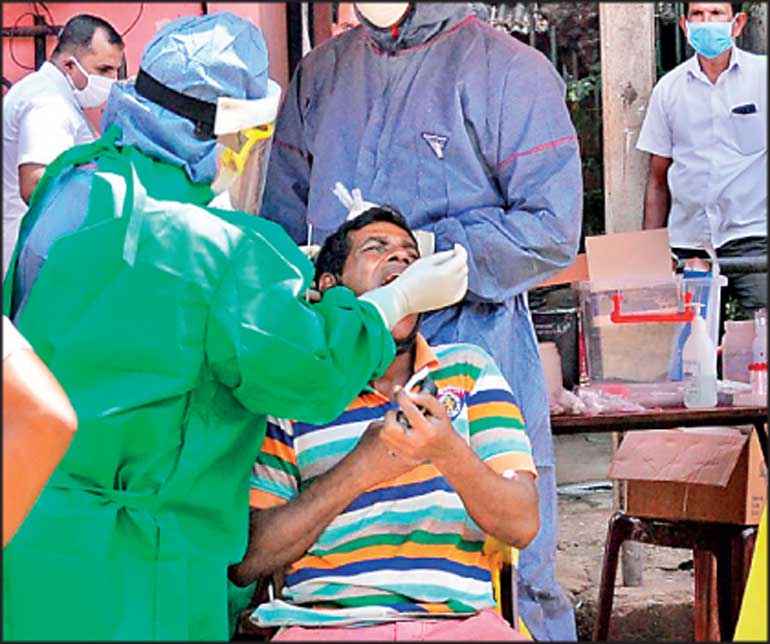Wednesday Feb 18, 2026
Wednesday Feb 18, 2026
Saturday, 1 January 2022 01:51 - - {{hitsCtrl.values.hits}}

By Shailendree Wickrama Adittiya
Sri Lanka’s COVID-19 case count rose to 587,245 with the detection of 499 COVID-19 patients yesterday.
The COVID-19 cases detected yesterday include 495 persons from the New Year cluster and four overseas arrivals. According to the Health Promotion Bureau, 5,940 PCR tests were conducted yesterday.
The previous day, 6,224 PCR tests and 3,957 rapid antigen tests were conducted. The COVID-19 patients detected on Thursday include 558 persons from the New Year cluster, three persons from the Prisons cluster and two Sri Lankan overseas returnees.
In total, 482,568 persons from the New Year cluster, 82,785 persons from the Peliyagoda cluster, 9,068 persons from the Prisons cluster, and 3,059 persons from the Divulapitiya cluster have been detected.
In terms of imported cases, 7,024 Sri Lankan overseas returnees and 328 foreigners have tested positive for COVID-19.
The district distribution of COVID-19 detections shows 117,570 persons from Colombo, 101,356 persons from Gampaha, 53,872 persons from Kalutara, 38,276 persons from Galle, and 28,647 persons from Kurunegala.
During the third wave of the pandemic, 85,273 patients from Colombo, 82,822 patients from Gampaha, and 46,814 patients from Kalutara have been detected.
At present, 11,772 persons are under medical or home-based care and 2,200 persons suspected of having COVID-19 are under observation.
The country’s COVID-19 recoveries rose to 560,494 with 181 persons released from care yesterday.
Epidemiology Unit data shows that a total of 543,946 COVID-19 patients were detected in 2021 alone, with only 43,299 total COVID-19 detections recorded at 10 a.m. on 1 January 2021. At the time, the COVID-19 death toll was 204. A total of 14,775 COVID-19 fatalities were confirmed in 2021.
Meanwhile, Deputy Director of Health Services Dr. Hemantha Herath stressed the importance of following health guidelines, saying, “The festive season is a very decisive one. If we act responsibly during the festive season, we can prevent an increase in patients in January and February.”
